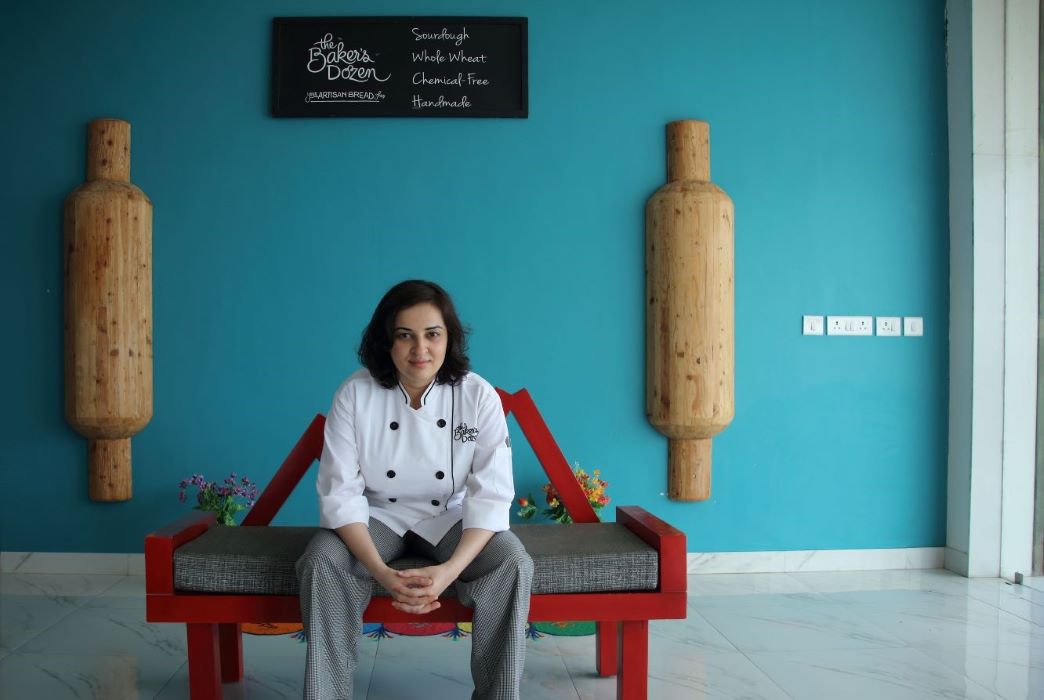CSR in sports is increasingly gaining ground as sportsperson getting the financial and training support are shining at not only national but international events also. At the Tokyo Paralympics 2020, Indian athletes with disabilities showcased their unwavering determination by bringing home 19 medals, including 5 golds, despite facing numerous challenges.
The Baker's Dozen (TBD) under its ‘Keep Moving’ initiative is also supporting young talent from rural India, starting with para-athlete Sheetal Devi. Sheetal is India’s youngest female state-level archer, who hails from one of the remotest villages in Jammu & Kashmir. Despite being born without hands, she has excelled in archery, using her toes instead.
In this interview, Aditi Handa, Co-founder of TBD speaks to TheCSRUniverse to share her thoughts on her organisation’s CSR efforts towards supporting sports persons. She says that supporting people through CSR programmes when they need it most is the best way to give back to the society. Aditi also feels it's important to share stories of sportspersons like Sheetal's to inspire others to adopt a similar level of determination and resilience in their own lives.
Scroll down to read the full interview:
Q: Could you please elaborate on this particular initiative 'Keep Moving'? What kind of support are you providing to Sheetal Devi under this project?
A: Keep Moving is an initiative named for our brand- The Baker’s Dozen’s (TBD) CSR wing. The inspiration behind naming this was conceived back in 2020 during the first lockdown (Covid 19). All of us were caught so unaware and unprepared and the only thing that made sense then was to look forward and keep moving, no matter what, never stop. This thought process has contributed significantly to not just us surviving the pandemic but thriving in it. When it came to thinking of names for our CSR initiatives, it only made sense for it to be attributed to one of the core qualities for us reaching here.
For the next 2 years, TBD will aid in Sheetal's overall development by contributing significantly to her food, housing, tuition and so on.
Q: According to you, what all kinds of CSR interventions can be made by corporates, especially for differently-abled sportspersons, to have a long-term meaningful and sustainable impact on the community?
A: In my opinion, as an individual or as a company, when one chooses to contribute towards a cause, we must not always analyze the results of it. As an entrepreneur, I think donations/help should be given to people who need it, as this is one of the easiest ways to give back to the community. Our country is a land of talented individuals and because of improper support - financially and socially, such people get demotivated and unfortunately have to drop off their sports careers.
Q: What are the current challenges and hurdles facing sportspersons from this community? How can social sector stakeholders address those issues?
A: Nowadays sports personalities face a lot of challenges, especially the ones who are not fully able. Right from physical challenges to societal pressure, these sportspeople have to deal with and manage a lot of things. Another important hurdle these sportspeople face is sourcing the right equipment and to find a skilled trainer. The lack of such equipment can easily become a barrier to participation, since its cost is often too high and not all families can afford to buy it, and governmental funds are often low to non-existent. To fill in the white space here and encourage such athletes, it is important for brands/companies to take a step ahead and help these talented people to pursue their dreams. Even small donations can make a big difference and motivate them. So, it’s time for us to give back to society and the community in every possible way.
Q: Based on your experience, what all important lessons have you learned from a personality like Sheetal Devi? How do you think those learnings can impact the lives of the rest of the community and also sensitize social sector stakeholders towards the cause?
A: What attracted me the most to Sheetal was how she has not let her disability be a barrier, she is competing with the abled. She is stating a very important fact that ‘I don't treat myself differently and hence the world should not.’ She is an inspiration to so many of us who at times limit our own growth due to our perceived handicaps. I want more and more people to know about this inspiring girl, of her determination and grit, and bring that into our own lives. Nothing should stop us and we must always Keep Moving.
Q: You have very accurately observed and mentioned that companies or brands invest in sports persons only when they have achieved a certain kind of recognition. How do you think this biased mindset can be changed and more focus is given to encouraging and supporting budding sportspersons like Sheetal Devi?
A: CSR to me is Seva and when we do Seva we mustn’t measure it with the same lens as we do business. We do Seva because it is our duty to do so and it brings some peace and joy to us which nothing else can. We must help those who need it most, to question whether they deserve it or not or did they best utilize it or not, we must leave it up to God. My Dadi used to say “Neki kar, kuein mein daal” and that’s what I follow while associating with such inspirational individuals.


















.jpg)



